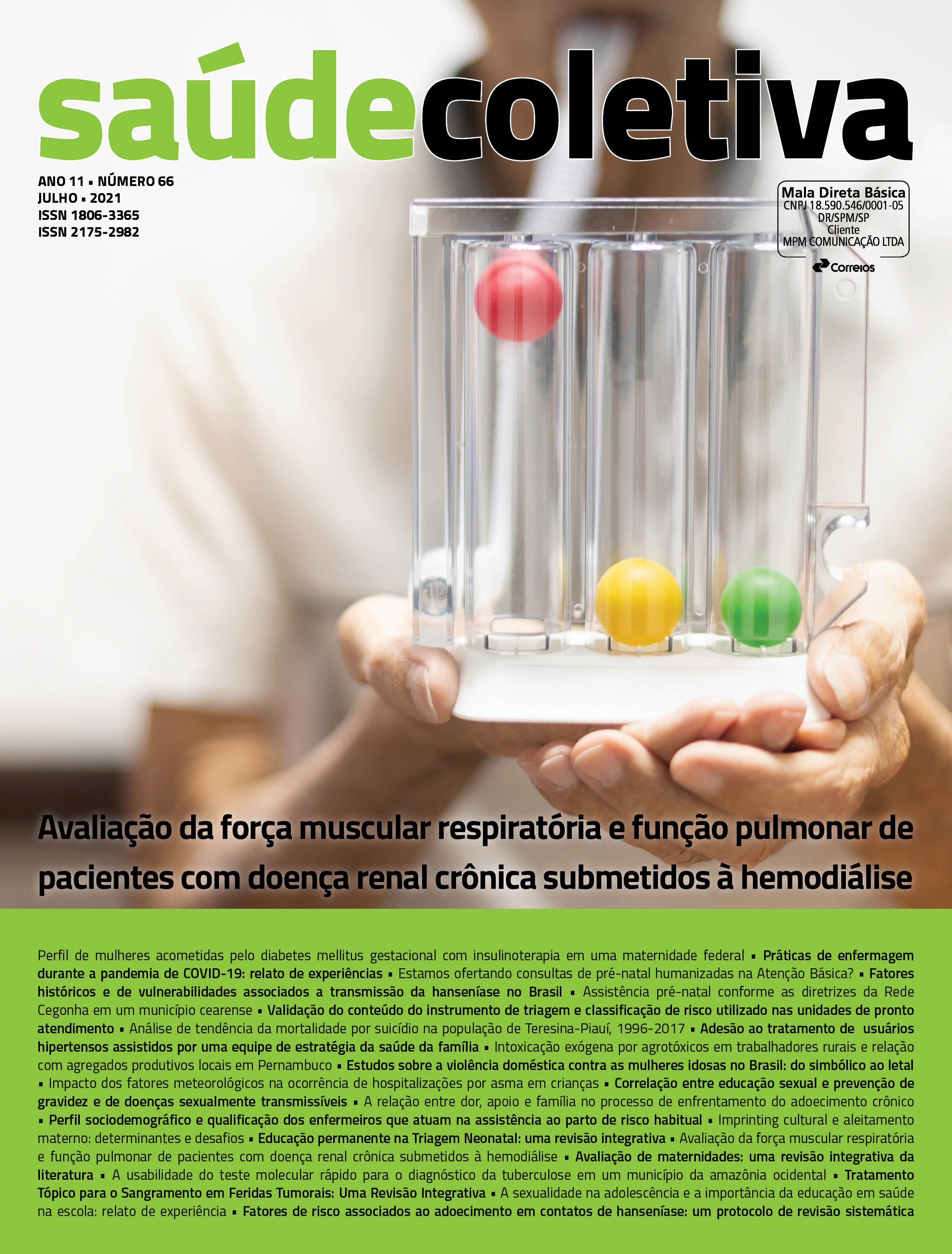The usability of the rapid molecular test for the diagnosis of tuberculosis in a west amazonian municipality
DOI:
https://doi.org/10.36489/saudecoletiva.2021v11i66p6555-6570Keywords:
Tuberculosis, Polymerase Chain Reaction, DiagnosisAbstract
Objective: To describe the usability of the Rapid Molecular Test for Tuberculosis (TMR-TB) for the diagnosis of TB in Porto Velho, Rondônia. Method: It is a descriptive, cross-sectional and quantitative study developed in the city of Porto Velho-RO. The population consisted of all TB patients notified from January 12 to August 15, 2017, and who underwent TMR-TB. Data were collected using the TMR-TB Registration Book of a municipal laboratory and the Notifiable Diseases Information System. The data were stored and analyzed using descriptive statistics after complying with the ethical precepts. Results: 2,317 samples were analyzed, of which the unit that most requested the TMR-TB was the penitentiary complex (33.1%), with the highest amount of positives results in Tertiary Care (27.8%). The highest number of requests for TMR-TB occurred in May (19.6%), and in June, the highest percentage of positive results (17.1%). The sample type most analyzed was sputum (97.6%), which represented 100% of the positive results. The average time between diagnosis and the start of treatment was 3.54 days (SD = ± 8.32), and the predominant pulmonary clinical form (95.7%). Conclusions: There is a need to raise awareness of Primary Care and strengthen this level of care for actions to interrupt transmission, as well as the recognition of when the test should be requested to provide an immediate start to treatment and the importance of computerization of data related to exam records, aiming to assist in the evaluation of TB control strategies.







